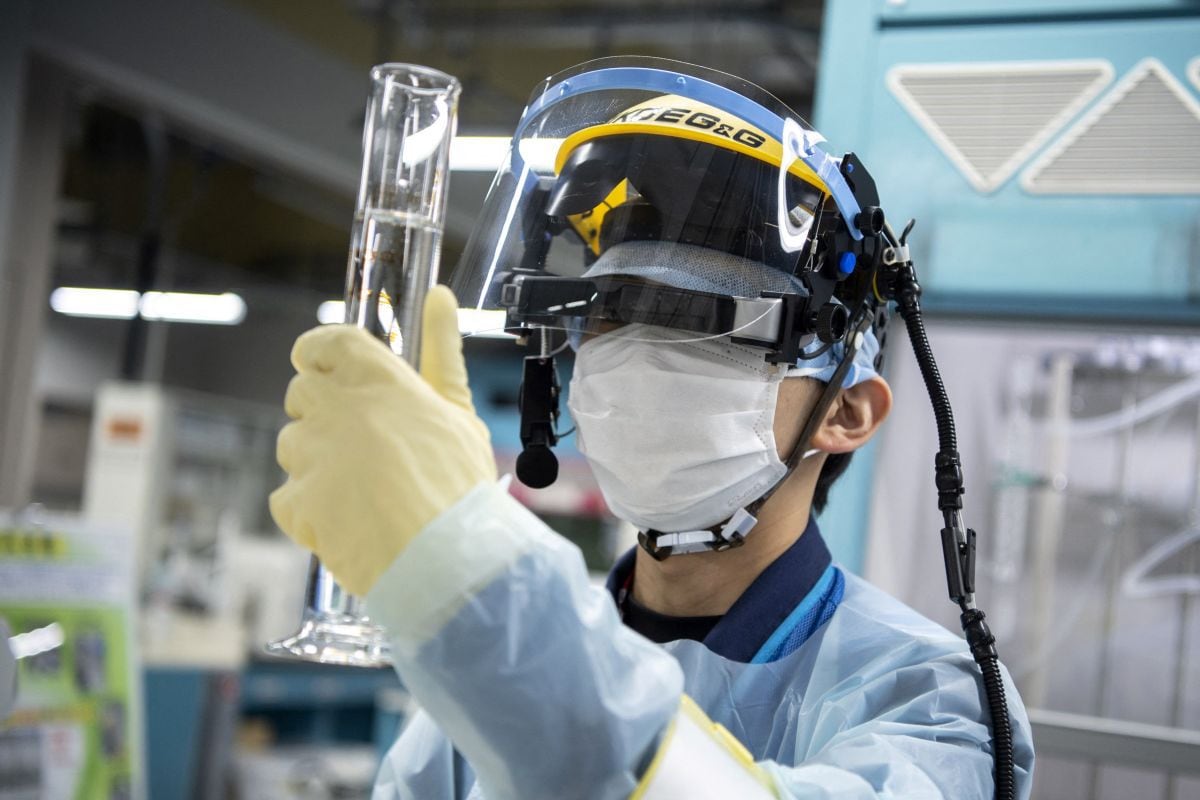
The government of Japan approved this Friday a revised plan to pour in the coming months to the Peaceful the contaminated and treated water that accumulates in the rugged power plant of fukushimaa measure that continues to be surrounded by controversy despite the fact that the Japanese authorities defend that it does not represent any risk.
The plan, discussed for years by the operator of the plant, Tokyo Electric Power (TEPCO), and the Japanese Executive, is also being analyzed by the International Atomic Energy Agency (IAEA) and, in addition to the rejection of the region’s fishermen, it has been criticized by neighboring countries and environmental organizations.
1. Why does contaminated water accumulate in the plant?
This is seawater used to cool the damaged reactors after the partial meltdowns caused by the earthquake and tsunami of 2011, and which is contaminated with radioactive isotopes. Added to this water is the water that filters from the subsoil towards the nuclear facilities and is also contaminated.
READ ALSO: Payment chain begins to be cut in the south of the country due to protests
The liquid has been stored in drums within the Fukushima Daiichi facilities, but the space for them has reached its limit, so it has been decided to dump it into the sea between spring and summer of this year.
2. Is it radioactive water?
The highly contaminated water generated by the plant is processed in circuits called ALPS (Advanced Liquid Processing System) to remove 62 types of radioactive materials, with the exception of tritium, and is again stored in drums before being discharged into the sea.
The tritium It is a radioactive isotope of hydrogen generated as a by-product of nuclear fission reactors. It is also generated naturally in the atmosphere and ends up in rainwater or drinking water.
3. Is it dangerous for human health or the environment?
Tritium in low concentrations similar to those existing in nature represents a negligible level of radiotoxicity.
The levels of this element in the water that will be discharged into the sea will be forty times lower than the legal limit established by the Government of Japan for drinking water, and 1/7 of the maximum set by the World Health Organization, according to data from the Executive nippon.
LOOK HERE: What happens to the value of land in Cusco and Chinchero due to protests
4. Who is against this measure?
The Fukushima fishing industry, whose activities are still suffering from the consequences of the atomic disaster that occurred at the plant in 2011, maintains its opposition to the plan of the Government and TEPCO, considering that the spill will maintain the nuclear stigma that weighs on its products and will prevent its recovery in future years.
The financial aid offered by the Executive to the local brotherhoods has not been enough to convince them.
The environmental and anti-nuclear organization Greenpeace have also expressed a firm rejection of this measure, while Beijing and Seoul have criticized the measure due to their concern about its possible environmental impact and on the fishing industry, and demanded alternative plans from Japan.
5. Are there alternatives to landfill?
The Japanese authorities and a scientific panel analyzed a series of possible solutions, including evaporation methods or underground injection, but discarded these options due to their enormous technical complexity and opted for discharge into the Pacific.
Japan and the IAEA also stress that controlled discharges of water or water vapor containing tritium from nuclear power plants into the sea are common practice in the nuclear industry.
In the last decade, countries like United States, United Kingdom, Germany, France, China and South Korea They have, sometimes with higher tritium concentrations than expected at Fukushima, according to industry data.
Source: EFE
Source: Gestion
Ricardo is a renowned author and journalist, known for his exceptional writing on top-news stories. He currently works as a writer at the 247 News Agency, where he is known for his ability to deliver breaking news and insightful analysis on the most pressing issues of the day.












